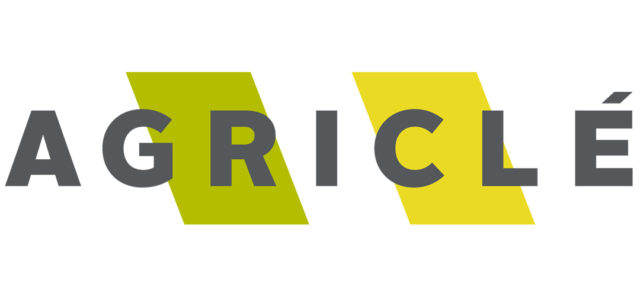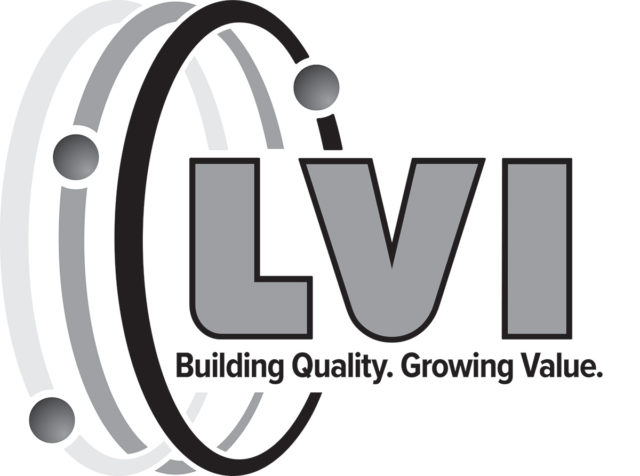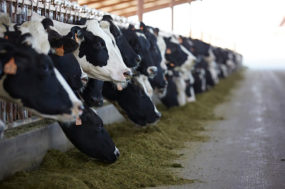As one of the stops on the Progressive Dairy Operators’ (PDO) mini-bus tour in September, Athlone Farms Inc. opened its doors to allow visitors a look at its most recent expansion. Instead of building another barn and hoping to purchase enough quota to fill it, Brian and Wendy Anderson, along with their son-in-law and daughter, Dennis and Heather Peters, and their son, Alex Anderson, opted to build an aerobic digester and start another business entity under the name Athlone Bio Power Inc.
Click here to view how it all works at full size in a new window.
“We have young people coming after us,” Wendy Anderson says of her children, who are active on the farm and involved in management decisions. “We wanted to diversify. It was not possible to expand our land base or our herd.”
The digester provides the opportunity to generate additional income while focusing their concentration on their 160-cow herd.
Manure from the farm is pumped into the digester throughout the day, and they take in additional feedstuffs as well.
Products like potatoes, off-spec pet food, and organic grocery wastes are brought to the farm to be fed into the digester. A neighbour also delivers chicken manure.
“We are careful about what we’re bringing in,” Anderson says, “because we know it will be used under the cows.”
They opted to install a pasteurizer, which gives them the flexibility to take in additional substrates. Any non-farm products are pasteurized before entering the digester.
Overall, Anderson says she likes the environmental benefit of using materials that would have gone directly to the landfill and instead capturing the methane in a useful manner.
She also mentions she would like to see more regulation that governs the disposal of waste material. “If companies were persuaded to work with digesters, it would be better for the environment,” she adds.
The farm plans to increase its electrical output in the next couple of years to regularly produce 500 kilowatts of electricity.
The site is already set up for that capacity from the type of pipe that was laid to the two 250-kilowatt engines. The only thing missing is a second digester to generate additional methane. Plans are to add that within the next year.
The second digester will allow them to increase their holding time of materials to produce more methane from what they are currently digesting.
In addition, thanks to a recent regulation change the farm will be able to bring in more substrates. They can now utilize off-farm materials at a rate of 50 percent, up from the previous rule of 25 percent.
Based on their contract, all power generated is sold off the farm, using a separate service and line, which was designed as an extra safety measure to not affect the cows.
The separated solids are used to bed the cows. Previously the farm top-dressed its rubber mats with straw and now uses the digestate as a cover. It is replenished daily and regularly scraped out when it gets wet or dirty.
“We think the cows quite like the digestate to lay on,” Anderson says. “They seem to lay down more, and in time, we should see fewer swollen hocks.”
Liquids are stored in the farm’s existing manure storage and will be used as fertiliser on the farm’s 650 acres. While too early to speculate, Anderson says she is hoping the digester will reduce the farm’s commercial fertiliser costs.
“The liquid fertiliser is more readily available to the plants, and it doesn’t smell when you apply it,” she adds.
Because the digester generates more heat than electricity, the farm is considering how it might be able to utilize that in the future. A heated calf barn or greenhouse are some of the ideas they have in mind.
In any case, only six months into operation, the digester has fulfilled what it was meant to do – provide new opportunities to the fourth generation of Athlone Farms Inc. PD









